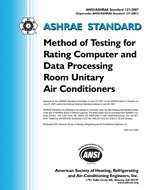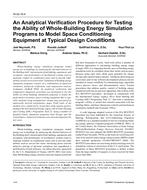The paper presents a theoretical study of the influence parameters during forced and free convection of air between a photovoltaic panelandglass glazing ofacurtain wall-integrated photovoltaic/thermal (BIPV/T) system. Design parameters such as airflow velocity, spacing between the photovoltaic (PV) panel and the glass glazing, and air mass flow rate were investigated. The outlet and PV temperatures, the thermal and electrical energy produced, as well as thermal and electrical efficiencies for different velocities and spacing between thePVpanel and the glass glazing were determined. For forced convection, for a given air velocity, increasing the spacing between the PV panel and the glass wall has the effect of decreasing the outlet temperature. Both the thermal and electrical energy were found to be higher in fall and winter seasons for both types of convections (forced and natural).For forced convection fromMaytoNovember, higher air velocities led to negative thermal energy recovered. Generally, in fallandwinter, increasing the airflow velocity increased the thermal and electrical efficiencies.Forced convection of air with equal mass flow rate to that of free convection led to lower outlet and PV temperatures. Free convection led to lower electrical and thermal efficiencies in summer. However, for the case of free convection, the thermal energy recovered never became negative for investigated air mass flow rates in contrast to the results obtained for forced convection.The results indicate that for given design parameters, development and deployment of fan control strategies may be necessary to optimize the total energy production, both thermal and electrical, forall seasons of the year
Citation: ASHRAE Transactions – Volume 120, Part 1, New York, NY
Product Details
- Published:
- 2014
- Number of Pages:
- 13
- File Size:
- 1 file , 2.5 MB
- Product Code(s):
- D-NY-14-008


